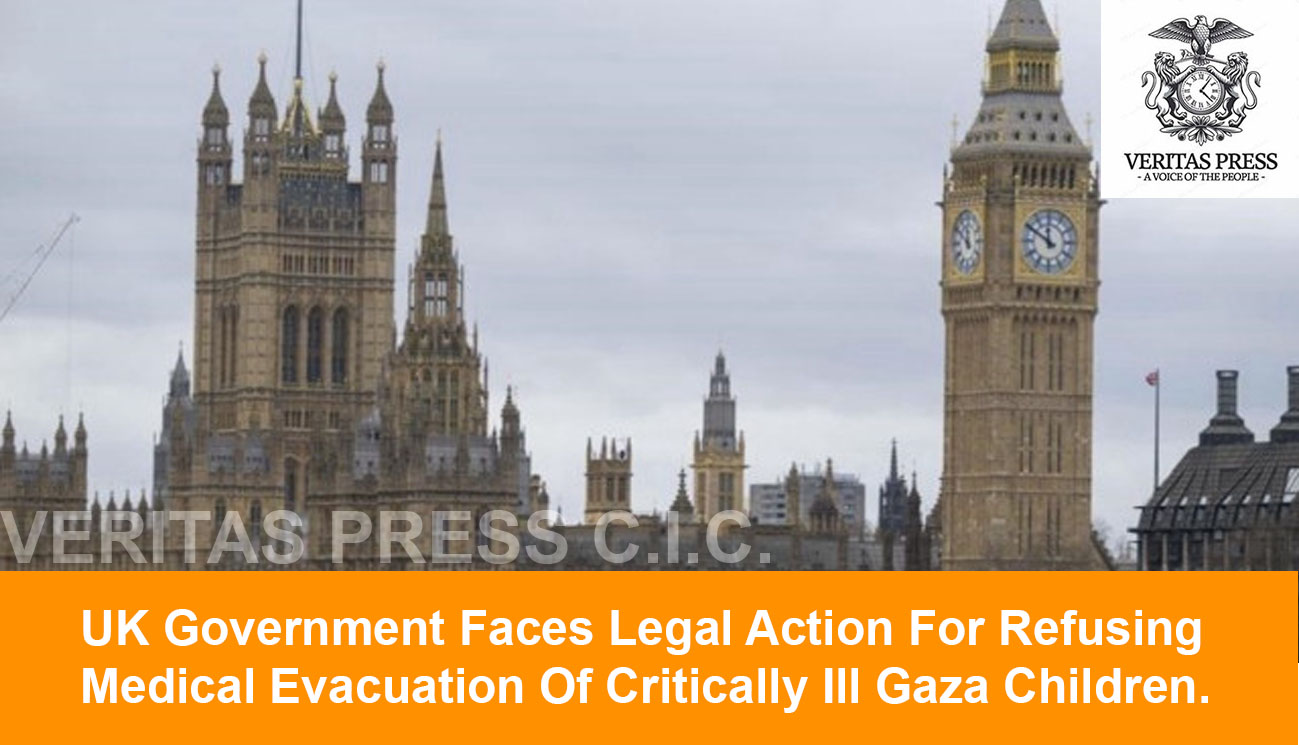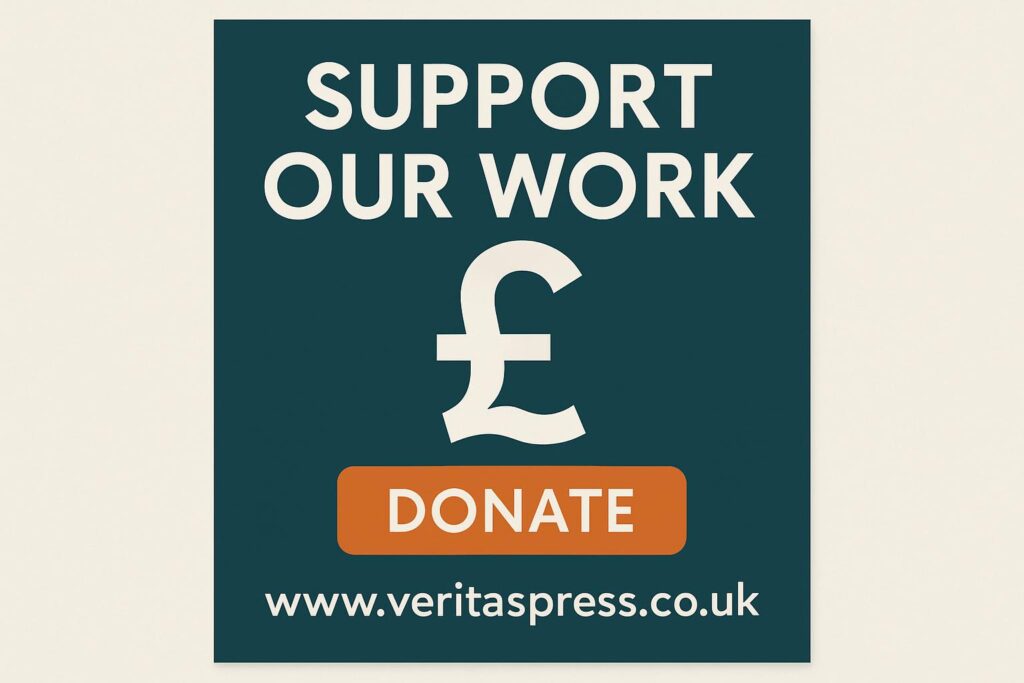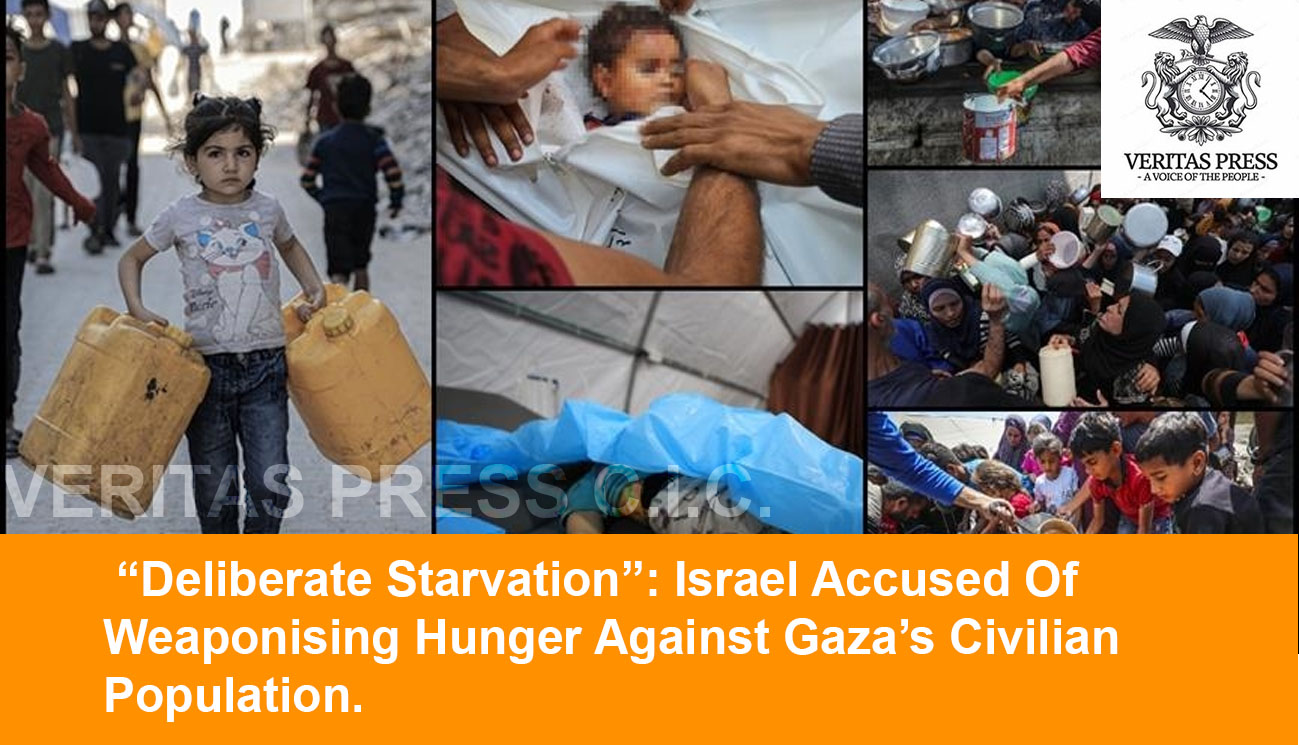Campaigners accuse ministers of hypocrisy, citing past humanitarian airlifts from Bosnia and Ukraine, as the legal challenge escalates pressure on the Starmer government.
The UK government is facing mounting legal and political pressure over its refusal to evacuate critically ill Palestinian children from Gaza for urgent medical treatment, in what human rights lawyers and campaigners are calling a “profoundly inadequate” and “morally indefensible” policy.
A pre-action legal letter has been filed against both the Foreign, Commonwealth & Development Office (FCDO) and the Home Office on behalf of three gravely ill children trapped in Gaza, where Israel’s ongoing assault has decimated the healthcare system. The challenge, led by prominent human rights law firm Leigh Day and supported by the charity Children Not Numbers, accuses UK ministers of failing to consider the total collapse of the healthcare infrastructure in Gaza before denying evacuation requests.
In sharp contrast, the legal team argues, Britain has a long and well-documented history of facilitating medical evacuations from war zones, including the airlift of child victims during the 1990s Bosnian war, and more recently, special visa routes for Ukrainian and Afghan refugees requiring urgent treatment. No such scheme currently exists for Palestinian children in Gaza.
“No Time To Wait”: Three Children In Urgent Need.
The legal challenge centres on three children: two siblings suffering from cystinosis nephropathy, a rare and life-threatening kidney condition that has already led to kidney failure in both; and a two-year-old with a severe arteriovenous malformation in his cheek that causes regular bleeding and life-threatening complications. One of the siblings can no longer walk due to the progression of the disease.
“These are children who will die without specialist treatment, and that treatment simply does not exist in Gaza anymore,” said Carolin Ott, the solicitor leading the legal action. “The government’s claim that treatment is available in the region, and that privately funded visas can be obtained, is not a serious response to the humanitarian catastrophe unfolding in Gaza.”
According to the World Health Organisation (WHO), as of April 2025, 12,500 patients in Gaza require urgent medical evacuation, including nearly 5,000 children. But the UK has not positioned itself as a receiving state for any of these patients. The only exception was in May, when two critically ill children were flown to Britain under the care of the small UK-based charity Project Pure Hope. Their treatment was entirely privately funded, and even that single instance required extraordinary lobbying and logistical coordination.
Project Pure Hope had requested the establishment of a government-funded Gaza-UK medical evacuation corridor. That request was rejected, according to legal filings.
Government Silence And Political Pressure:
The UK government has until July 28 to respond to the legal letter. Neither the FCDO nor the Home Office has publicly commented on the case, although a government spokesperson reiterated existing humanitarian commitments in a prior statement:
“Since the start of the conflict, we have provided healthcare to more than 500,000 people in the Occupied Palestinian Territories and supported field hospitals, medical supply chains and logistics.”
In May, the government announced a £7.5 million aid package for medical assistance in Gaza and neighbouring regions. But humanitarian groups argue this is no substitute for direct medical evacuation of critical cases.
“Field hospitals and bandages won’t treat organ failure,” said Dr Hani Isleem, Gaza-based project coordinator for Médecins Sans Frontières (MSF), which has evacuated 22 patients so far. “Other countries have stepped up, including Egypt, Qatar, the UAE, and several European states. The UK’s absence is glaring.”
Some countries, Dr Isleem added, are hesitant to accept evacuated patients due to fears they will be seen as facilitating forced migration. “But let’s be clear, this is not about immigration. It’s about keeping children alive.”
Scottish Government Offers Help, But Westminster Is Unresponsive:
The legal challenge comes amid growing domestic political pressure. Earlier this month, Scotland’s First Minister John Swinney wrote to Prime Minister Keir Starmer, offering to receive Gaza’s wounded children into the Scottish NHS.
“We stand ready to help,” Swinney wrote. “But we cannot do so without UK government assistance to navigate the visa and border process.” Starmer has yet to respond.
Swinney’s letter reflects wider frustration from devolved governments and local NHS trusts, who have in the past conflicts, mobilised specialist treatment programs for wounded children abroad.
“It’s incomprehensible that a Labour government, elected on a platform of internationalism and compassion, is ignoring these pleas,” said Layla Moran, Liberal Democrat MP and the only UK parliamentarian of Palestinian descent. “The refusal to evacuate children from Gaza while doing so for children in Ukraine and Afghanistan reeks of racial and political double standards.”
International Context: More Than 20,000 Children Killed.
The legal case also takes place against the backdrop of one of the most devastating humanitarian crises of the 21st century. Since October 7, Israel’s military campaign has killed over 100,000 Palestinians in Gaza, according to the territory’s Ministry of Health, more than 20,000 of them children. UNICEF and WHO officials have warned that Gaza is becoming “uninhabitable,” with most hospitals destroyed and critical infrastructure collapsed.
According to the Gaza Health Ministry, over 80% of the remaining hospitals are either non-functional or only partially functional due to Israeli strikes, power outages, and severe shortages of fuel and medical supplies.
“This is not just a war zone,” said Dr Richard Brennan, regional emergency director at WHO. “It is an open-air mass casualty ward, and the world is turning its back.”
A Test Of Britain’s Humanitarian Credibility:
Campaigners argue that the UK’s refusal to evacuate even a symbolic number of critically ill children undermines its claims to global humanitarian leadership. “If the UK can take in just two children in nine months, while thousands of children are dying, what does that say about our values?” asked Maya Evans, director of Children Not Numbers.
The legal team is urging the UK government to immediately create a dedicated humanitarian visa route for Gaza’s critically ill civilians and to declare the UK a receiving state for medical evacuations, as it has done in previous conflicts.
“This is not a request for mass migration,” said Carolin Ott. “It’s about meeting our basic obligations under international humanitarian law and our moral responsibility to children whose lives hang in the balance.”
The outcome of the legal challenge, expected to escalate if the government does not respond by July 28, could set a precedent for Britain’s obligations in future conflicts and for whether it will continue to apply different standards to different victims of war.
Conclusion: A Policy of Paralysis and Complicity
As the legal deadline looms, the UK government faces not just a courtroom challenge but a profound moral reckoning. Its refusal to evacuate critically ill Palestinian children from Gaza is not a matter of bureaucratic oversight or resource constraint; it is a deliberate policy choice. One that reflects a deeper crisis of political will and moral consistency at the heart of British foreign and immigration policy.
In past conflicts, Britain acted decisively: airlifting wounded children from Sarajevo in the 1990s, creating emergency visa routes for Ukrainian refugees in 2022. But in Gaza, where the scale of destruction, civilian casualties, and medical collapse far surpasses those of previous crises, the UK has offered little more than rhetorical concern and limited regional aid. Ministers speak of supporting “treatment options in the region,” yet Gaza’s hospitals lie in ruins and its health system has all but collapsed under Israeli siege and bombardment. The promise of private visas rings hollow when children are dying from preventable conditions without any functioning hospitals to treat them.
The facts are damning. As of July 2025, the UK has evacuated just two children from Gaza, both through a privately funded charity, and even that effort, legal filings suggest, was resisted rather than supported by the government. Meanwhile, more than 12,500 patients, including nearly 5,000 children, urgently require evacuation. Other countries, Egypt, the UAE, Qatar, and various EU states, have stepped up. Britain has not.
This selective application of humanitarian concern, extending sanctuary to some victims of war while denying it to others, exposes a troubling double standard. Legal experts warn it may not only be morally indefensible but also potentially in breach of international humanitarian law, including Britain’s obligations under the Geneva Conventions. Campaigners argue it amounts to discriminatory policy-making, where access to life-saving care is determined not by need, but by nationality, race, and geopolitical convenience.
At a time when the UK seeks to reassert its global humanitarian leadership, this silence over Gaza and its refusal to offer even symbolic sanctuary to dying children raises uncomfortable but unavoidable questions. Is British compassion conditional on the identity of the victims? Is the application of international law reserved for adversaries, not allies?
For a government that claims to champion human rights and the rule of law, the contradiction is devastating. If the lives of Palestinian children are treated as less worthy of rescue than those from Kyiv or Kabul, then Britain’s humanitarian principles are not universal; they are political.
Unless Prime Minister Keir Starmer’s administration urgently reverses course and establishes a credible, government-backed evacuation route for Gaza’s critically ill children, this legal challenge will not only expose policy failure, but it will also define Britain’s place in one of the most catastrophic humanitarian crises of our time. Inaction now will be remembered not as neutrality, but as complicity and heavily encased by nausea and constipation.
Key Numbers:
- 3 children involved in legal challenge
- 12,500+ patients in Gaza need evacuation (WHO)
- 4,984 of those are children
- 2 children have been treated in the UK since October 7
- £7.5 million: UK government’s recent aid package for medical support in Gaza
28 July: Deadline for UK government to respond to legal action






























Leave a Reply